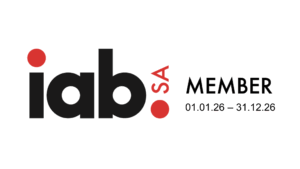Abidjan – As Ivory Coast heads for presidential elections this year, the heaviest hitters remain two octogenarians who have dominated its politics for decades – but three in four citizens in the African dynamo are under 35.
At age 83, President Alassane Ouattara, whose party has nominated him to run for a fourth term in the October elections, has been in office for 15 years.
His top rival is the man he ousted from power after two bloody civil wars, Laurent Gbagbo, 80, who has declared his candidacy, even though he is barred from running over a conviction stemming from the conflict.
That leaves little room for a new, politically engaged generation to seek power in one of the world’s fastest-growing economies — an issue young politicians say they are trying to handle with patience as they await their turn in an ageing political arena.
“It’s a gerontocracy,” said political scientist Geoffroy Kouao.
“Our political parties generally have elderly leaders,” he told AFP.
“In the popular imagination, ‘youth’ is a synonym for political immaturity. The leaders don’t trust them.”
The only member of government under the age of 50 in Ivory Coast is currently Youth Minister Mamadou Toure, 49.
Tidjane Thiam, the leader of the main opposition party, the Democratic Party of Ivory Coast (PDCI), has been hailed as a figure of “renewal”, at age 62.
Yet 75.6 percent of Ivory Coast’s 29 million people are under 35, the minimum age to run for president.
Biding their time
The shortage of youth in top leadership roles is partly cultural, said Mylene Amary Kacou, the 32-year-old vice president of Gbagbo’s party, the African People’s Party — Ivory Coast (PPA-CI).
“In Africa, we say our elders are always right,” she said.
Like other emerging political figures interviewed by AFP, 40-year-old Valentin Kouassi of the PDCI said he values learning from his more-experienced elders.
But “you don’t get into politics without having ambitions of your own,” he said.
The country should be “as democratic as possible”, he said — a doubly pointed comment, given both the lack of young people in power and the fact his party’s leader, Thiam, has been banned from running after a court ruling cast doubt on his nationality.
Critics have condemned the bans on Thiam, Gbagbo and two other opposition figures as attempts to sideline Ouattara adversaries, accusations the government denies.
Young Ivorians who oppose Ouattara’s government broadly share the same complaint: a lack of good jobs.
The official unemployment rate in the leading cocoa and palm oil producer is 2.3 percent.
But 88.4 percent of jobs are in the poorly paid informal sector, according to the African Development Bank.
Struggling to find their place in the economy and in politics, many young Ivorians are torn between chasing their dreams and patiently waiting their turn.
‘Climb through the ranks’
“I want to climb through the ranks. But I’m not putting my personal ambitions first,” said another rising young politician, Mamadou Kone, 36, a youth ministry adviser and youth leader of the ruling RHDP party.
Issouf Olivier Traore, 29, rejects criticism that Ivory Coast’s youth are apolitical.
Traore, the national youth secretary for opposition movement Ivory Coast Today and Tomorrow (ADCI), ran unsuccessfully in the 2023 local elections.
“My generation supported me. They’re ready to get involved if one of their own accepts the challenge” of running for office, he said.
He called for a country where peaceful transfers of power are the norm, after a series of bloody election-related crises and conflicts from 2002 to 2011.
“That’s what we young people want to see,” he said.
As they wait for their own careers to take off, youth leaders are loyally supporting their elders for the October elections.
But they have their sights set high — like PPA-CI vice president Kacou, who said she sees herself as “minister or president — why not?”
“But in 25 or 30 years,” she added.
Follow African Insider on Facebook, X and Instagram
Picture: X/@KennedyWandera_
For more African news, visit Africaninsider.com
Source: AFP



